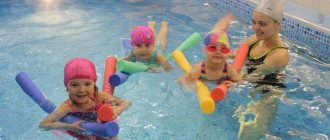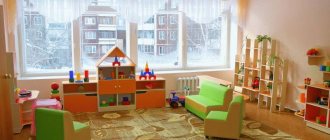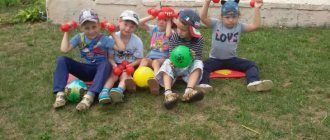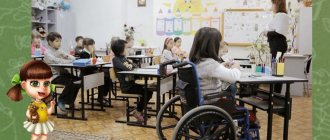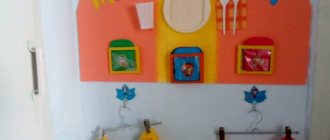What is the profession
Educators are teachers who work with children under 7 years of age. They look after children and are involved in their development. This is a sought-after profession, whose representatives work in kindergartens, camps and additional education institutions. Demand for educators continues to grow as the government plans to build 760 public kindergartens in Russia by 2021 and continues to support private institutions in the regions.
Most often, a new specialist begins his professional career as an assistant teacher. In some cases, you can become one even without specialized education. He cannot take part in conducting classes. Monitors cleanliness and acts as a nanny. If a specialist has received a professional education, he moves to the next auxiliary level - the position of a junior educator. Now he is allowed to teach classes. After receiving full qualifications, he becomes an independent specialist. And after three years of work, he can become a senior teacher, and then the head of a kindergarten.
Teachers work directly with children. Their main task is to promote the diversified development of children. They teach children the rules of hygiene, engage in their creative and mental development through playful forms and help develop social skills in the group. Teachers interact not only with their students. They communicate closely with parents, fill out paperwork and monitor the condition of the premises.
The senior educator develops methodological plans, programs and recommendations. He is responsible for reporting, organizing events and supervising the work of other teachers.
The manager is in charge of management. This position is not a teaching position, but requires an understanding of all processes in a kindergarten.
At the stage of planning your professional activity, it is important to immediately determine your career path in order to gradually move closer to your desired position.
Job descriptions for kitchen (food department) workers at preschool educational institutions according to Professional Standards
New job descriptions for employees of the catering unit (kitchen) of a preschool educational institution (kindergarten), developed in 2019-2020 on the basis of professional standards, include the job description of a preschool educational institution cook according to Professional Standard 33.011 “Cook”, as well as a chef and kitchen worker according to the EKS.
download: Documentation on Fire Safety in Preschool Educational Institutions 38 documents taking into account laws as of September 8, 2021!
Job descriptions for Professional Standards:
- Job description of a preschool educational institution chef (professional standard)
- Job description of a cook in a preschool educational institution (professional standard)
- Job description of an assistant cook at a preschool educational institution (Profstandart)
Job descriptions for CEN:
- Job description of a chef at a preschool educational institution (EKS)
- Job description of a cook in a preschool educational institution (EKS)
- Job description of a kitchen worker at a preschool educational institution (EKS)
download: Instructions for the catering unit (kitchen) Instructions for the catering unit of the School, preschool educational institution, Canteen, Restaurant, Cafe. Update: 09/05/2021
For completeness, the proposed package of job descriptions according to the professional standard for a preschool educational institution (kindergarten) is supplemented by some job descriptions developed in accordance with new laws in the field of education and a unified qualification directory of positions.
We recommend going to: Instructions for fire safety in preschool educational institutions Instructions for labor protection in the kitchen of preschool educational institutions
If you liked the page, share it on social networks:
Advantages and disadvantages of working as a teacher
To assess the attractiveness of your future profession, study the advantages and disadvantages of the job ahead of you.
Benefits include:
- A passionate team of kindergarten teachers are dedicated to their work and fully immersed in teaching. Here you can meet like-minded people who will support colleagues in their professional growth.
- Freedom for creative projects As a rule, heads and senior teachers encourage non-standard ideas for organizing activities and space in the kindergarten.
- Working with children Only those who love children should become teachers. Then working with them will be a pleasure.
- The opportunity to send your child to kindergarten without a waiting list When a specialist has his own children, this privilege becomes very pleasant.
- Extended leave Educators are entitled to 42 days of leave to recuperate and return to work. At the same time, good vacation pay is paid.
Disadvantages include:
- Strict schedule The teacher’s working day begins at 7.00-7.30 in the morning. Lateness is unacceptable. The working day ends in the evening when the last child is picked up. Some parents don't always do this on time.
- Emotional burnout Teachers are at psychological risk. To avoid burnout, it's important to understand the triggers of burnout.
- A lot of paperwork The teacher's responsibilities include filling out reports and forms. In some institutions they do this work by hand. Others have simplified this work by transferring it to electronic format.
- Emotional involvement in children's lives Children quickly become attached to their caregivers and can talk about difficult situations that happen at home. Problems in a child’s family can become a moral burden for teachers.
- Difficulty communicating with parents Sometimes you come across scandalous or indifferent parents. The teacher has to interact with everyone. The best assistant will be politeness and professionalism.
- Responsibility for the life and health of children The teacher is responsible for the children while they are at his disposal. Therefore, it is important to monitor each child and take care of his safety.
What are the requirements for the position of a teacher? Who can work as a teacher
The teacher is often one of the first “strangers” adults with whom the child interacts. Therefore, he must meet certain requirements, regularly develop his skills and confirm his qualifications every 5 years.
In addition to developed professional and personal qualities, the teacher should not have an active criminal record or protracted mental illness.
Professional skills
The activities of educators are regulated by the state professional standard for teachers. According to it, a specialist must have a secondary or higher pedagogical education; another option is a diploma from an institution of additional professional education. For training, it is important to choose a program developed in accordance with professional standards with a certain required number of academic hours. It may be called “Pedagogy and methods of preschool education,” as in ABiUS.
The teacher must understand child psychology, developmental psychology, the theory and methods of raising children of primary preschool age.
However, it is not enough to acquire knowledge; you must learn to apply it. For example, a professional must be able to determine the psychological state of a child and identify his needs.
An additional advantage in employment will be given to a teacher who has studied speech therapy pedagogy in depth or has mastered non-standard pedagogical methods, for example, Montessori. Also of great importance is knowledge of the basics of special pedagogy, which concerns children with disabilities. Since increasingly, kindergartens are becoming incorporated, which implies joint education of children with different abilities.
Personal qualities
Each institution usually has local requirements according to which managers select candidates. At the same time, it is difficult to say where the requirements for teachers are more stringent - in public kindergartens or in private ones.
Employers typically expect a childcare provider to:
- sociable in order to successfully find an approach to children and their parents
- friendly so that children quickly gain trust in a stranger
- with a positive mindset to cope with the complexities of a difficult profession
- caring and attentive to children, so that parents calmly trust their child’s teacher
- creative to come up with interesting activities and holidays
- inquisitive, to explore the world with children and enjoy discoveries with them
- stress-resistant to avoid emotional burnout and excessive emotions when dealing with parents or disobedient children
- aimed at development, so that the teacher has a desire to improve their skills
Who is suitable for working as a teacher?
Most often, a person gets the idea of becoming a teacher when he notices his warm attitude towards children. But as he gets acquainted with the specifics of the profession, he discovers that love for children and the ability to work with them are two different things. Therefore, you should initially check whether he should go into teaching. The qualities described below characterize a person who is ready to become a teacher:
- You are responsible and know how to evaluate your strengths.
- You are attentive to details: in people's behavior and in the environment.
- You are not afraid of unexpected situations and can react calmly.
- You are ready to immerse yourself in work and constantly develop in your chosen direction.
- You know how to control yourself and your emotions.
- You have high emotional intelligence and empathy.
- You understand all the risks of your profession
The main activities of a preschool teacher
In preschool activities, mental, moral, labor, physical and artistic-aesthetic education are distinguished, but in recent years more and more attention has been paid to environmental and legal education. This is due to the fact that the socio-economic and political situation in the country and throughout the world is rapidly changing, and modern children in these areas are much better developed than their peers of previous years. In addition, the requirements for the development of a full-fledged personality provide for the all-round development of the child, so ignoring the issues of modern times will not bring anything good. Preschool teachers have to use much more knowledge and skills than in previous years, as this is required by the environment and the changed rules for assessing the activities of the teacher and the requirements for them.
The main directions of the teacher’s pedagogical activity include the following sections:
- Self-education.
- Organization of problem-search work for a children's team.
- Expanding the skills and abilities of students through the introduction of new information technologies into their activities.
- Expanding the educational space of pupils.
- The use of special classes to prepare students for school using ICT.
- Expanding the teacher’s own horizons and educational space using the latest information technologies.
The work of preschool teachers and educators is carried out in different directions, but, in essence, is aimed at one most important goal - the formation of a child as an integral creative personality. Therefore, one of the most important tasks of any educator is the harmonious unification of all areas of their activities to achieve their goal.
In the pedagogical literature, there are often 5 main areas of activity of a teacher in a preschool educational institution. These concepts resonate with the job responsibilities of a teacher, but do not copy, but complement them.
You can find many different definitions of the main directions of a teacher’s work, but they all, in essence, boil down to the following brief and succinct formulations:
1. Care.
2. Education.
3. Supervision.
4. Organization of educational work.
5. Conducting educational work.
This can be deciphered as follows:
- Care is caring, patronizing and providing assistance to a pupil. It concerns both training and education, and purely human feelings, as well as the health of the child. The teacher creates a psychologically healthy atmosphere in the children's educational institution, thanks to which the child feels calm, confident, and safe.
- Education is a broad concept that includes both the inculcation of universal human norms and the formation of a free, fully and comprehensively developed personality.
- Supervision involves monitoring not only behavior and academic performance, but also identifying various violations for the purpose of their subsequent correction and correction.
- Organization of educational work is planning and preparation of the entire learning process in a preschool educational institution. It includes numerous stages - from self-education to the production of the necessary visual material.
- Carrying out educational work is the actual learning process, which involves all the knowledge and skills accumulated by the teacher.
Also, the directions of the teacher’s work can be formulated as follows:
- Sports and recreation.
- Spiritual and educational.
- General cultural.
- General intellectual.
- Social.
The presence of several formulations does not introduce different interpretations into the definition of directions of educational activity, but only explains, “deciphers” them.
What education is needed to work as a teacher?
You can study to become a teacher at a special college, university or in centers of additional professional education.
People are admitted to college after the ninth and eleventh grades of school. College students spend a lot of time on practical preschool skills. They undergo internships in kindergartens and can gain useful experience by the age of 18-20.
At the university, a student can go to the Faculty of Pedagogy and receive a specialty as an educator. Most diplomas labeled “preschool education” are well received by future employers. Over the course of 4-5 years, students deeply study the basics of pedagogy, psychology and health, and also become acquainted with new trends in education.
Without pedagogical education
If your first higher education does not concern pedagogy, you can become a teacher by completing a professional retraining program at additional vocational education institutions and receive a standard diploma in 2 or 4 months without interrupting your job.
To work as a junior teacher or assistant, appropriate vocational training programs with obtaining a certificate and obtaining qualifications are sufficient. All these programs are available in ABiUS.
- Retraining program “Preschool teacher”
- Professional training program “Junior teacher”
- Vocational training program "Teacher's Assistant"
Once you have received your specialized education, you can deepen your knowledge through advanced training programs.
